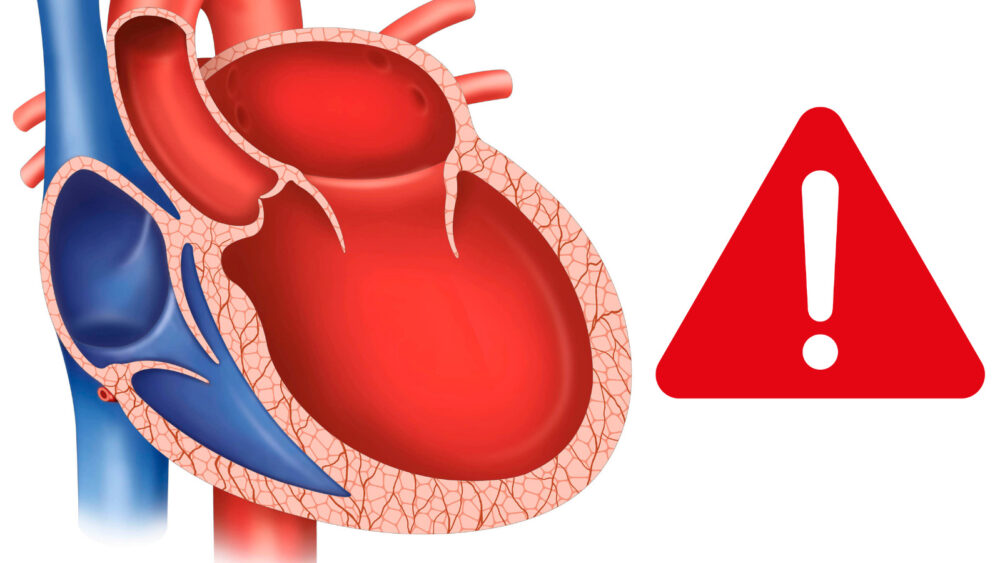Cardiomyopathy is a progressive disease that affects your heart muscles and makes it harder to pump blood to the rest of your body.
The condition can cause your heart to weaken and lead to heart failure. However, proper treatment can slow progression and improve your outlook.
Types of Cardiomyopathy:
There are two main types of cardiomyopathy.
- Dilated cardiomyopathy causes your heart’s blood chambers to enlarge. This type most often occurs in middle-aged people and is more likely to affect men.
- Hypertrophic cardiomyopathy involves abnormal thickening of your heart muscle. It mostly affects the main pumping chamber and can develop at any age.
There are also two rarer types of cardiomyopathy:
- Restrictive cardiomyopathy causes the heart muscle to become stiff and less flexible, limiting its ability to expand and fill with blood in between heartbeats. This is a less common type of cardiomyopathy, but it can occur at any age.
- Arrhythmogenic right ventricular dysplasia affects the lower right heart chamber and occurs when it’s replaced by scar tissue.
*Unclassified cardiomyopathy is a broader category for all other types.
Symptoms of Cardiomyopathy:
In the early stages, there might be no signs. In the later stages, some symptoms can include:
- Breathlessness during activity or at rest
- Swelling of the legs, ankles and feet
- Bloating due to fluid buildup
- Coughing while lying down
- Difficulty lying flat to sleep
- Fatigue
- Heart palpitations
- Chest discomfort
- Dizziness, lightheadedness, and fainting
Causes of Cardiomyopathy:
The majority of the time, the cause of cardiomyopathy is unknown. In some cases, it’s the result of another condition or passed on genetically.
Certain health conditions or behaviors that can lead to cardiomyopathy, according to the Mayo Clinic, include:
- Long-term high blood pressure
- Heart tissue damage from a heart attack
- Heart valve problems
- COVID-19 infection
- Metabolic disorders like obesity, thyroid disease or diabetes
- Lack of essential vitamins or minerals in your diet
- Pregnancy complications
- Iron buildup in your heart muscle
- Granuloma (the growth of tiny lumps of inflammatory cells)
- The buildup of abnormal proteins
- Connective tissue disorders
- Drinking too much alcohol over the years
- Use of cocaine or steroids
- Use of some chemotherapy drugs and radiation to treat cancer
Cardiomyopathy Prevention:
In most cases, you can’t prevent cardiomyopathy, but you can reduce the risk. Behaviors you can do to reduce your risk include:
- Limiting alcohol and drugs
- Controlling high blood pressure, high cholesterol and diabetes
- Eating a healthy diet
- Getting regular exercise
- Getting enough sleep
- Reducing your stress
For more information on cardiomyopathy, visit www.MayoClinic.org.



